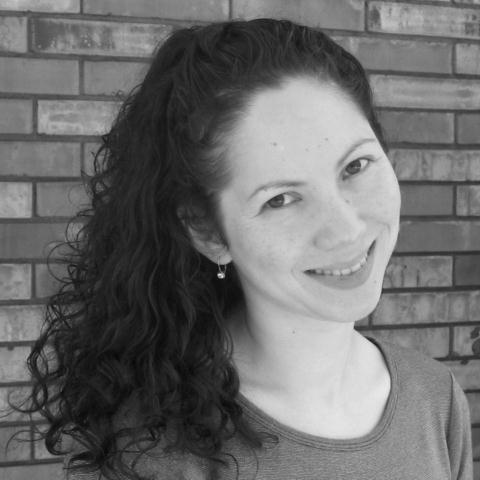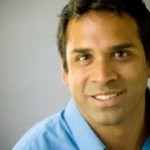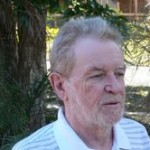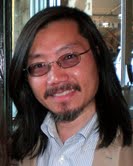 Kim-An Lieberman is a writer of Vietnamese and Jewish American descent, born in Rhode Island and raised in the Pacific Northwest. She holds a Ph.D. in English from the University of California, Berkeley. Her poetry collection, Breaking the Map, won the 2008 First Book Award from Blue Begonia Press.
Kim-An Lieberman is a writer of Vietnamese and Jewish American descent, born in Rhode Island and raised in the Pacific Northwest. She holds a Ph.D. in English from the University of California, Berkeley. Her poetry collection, Breaking the Map, won the 2008 First Book Award from Blue Begonia Press.
Unearthing Song
Today I am a child, leaping from bank of silt
into chest-deep canal, droplets silvering my brow
in the flat sunlight. Yesterday I was my uncle,
my grandfather, my grandmother, a nameless row
tied at the hands to haul buckets of dirt away
for a whisper of grain, chopping the steel-hard ground
to the clashing of hubcaps, staccato bullet-spray
breaking time apart. Gun muzzle jabbed in the back,
we slash at the land until its arteries lie splayed
and splashing, surging, indelibly green. We take
what we are given. We swallow what we must.
We clear skulls and jawbones from the floodgate
and burn what we are told to burn. Then today I am just
anyone, some random onlooker reading a dispassionate
news clip about the children of a faraway harvest,
six boys leaping from mudbank to silvering wet,
fed and happy, ignorant of what soft soils they till,
what buckets and buckets of blood. Every night
we rinse the white dust from our rice, let it boil
until the pot’s steaming broth is fragrant and clear,
no trace of iron or salt, no tang of human ill.
Meal after meal, we refuse to taste the labor,
the dark coagulate lodged between tongue and teeth.
So close the eyes. Swallow. We will dream our water
and bread in the sweetest light, will fully believe
our foods pure and close to the source, will live days
drunk on ash and bone-flake, hungering for need.
Every season a communion. Every year another seed.
The Anti-Chinese Riot at Seattle, Washington Territory, Drawn By W.P. Snyder, From Sketches By J.F. Whiting, of Seattle (Harper’s Magazine, March 1886)
A century’s span—candles to streetlights,
horsecarts to highways, whole city blocks
rising and crumbling, ungathered, remade—
but surely that morning was Seattle as ever,
drizzle and damp, cool salt-cornered air,
sun not yet risen between sheets of grey.
One man graved this image, line by line,
carved out jackets, shirtsleeves, collars, fists,
a dark throng of hats. We do not need captions
to understand the crowd’s clamoring roar,
the police guard swashing rifles overhead,
or the begging, frenzied figures at the center.
Their billowing black sleeves, their slippers.
Their long manchurian braids. Loudly limned
even in miniature, faces oval and eyeless,
absent any tint to warm the honey of their skin.
Some stand in profile, arms reaching outward.
Some run, but not far. Some kneel as if to pray.
But no hurried fear in the artist’s arrangement.
One strong line sweeps sharply left to right,
cordoning the bullies, centering the victims.
The reporter’s type tells how the quarter doors
yielded to quiet force, to a shivering multitude
dragged from sleep and herded to the harbor.
Decades shy of the flashbulb, the halftone,
we can only imagine the truths of this tale.
A terrified boy stuffing his bag, no time to find
the silks that his sister hand-stitched to fit.
A pile of gambling counters, an upturned chair.
Blood and breaking. Cold tea in half-empty cups.
All we have here are faint echoes of memory,
an after-hours geometry, a footnote on the fold.
And just one clear face frozen in the scene—
low, corner right. Thick mustache, dark felt hat.
He is cheering the mob. Or protesting. Or simply
bearing witness, pencil in his upraised hand.
 Tim Grey is a writer from Melbourne, who works a journalist, photographer and editor. He’s also part of The Red Room Company, where he helps create, publish and promote poetry in unusual ways.
Tim Grey is a writer from Melbourne, who works a journalist, photographer and editor. He’s also part of The Red Room Company, where he helps create, publish and promote poetry in unusual ways.






 Kim-An Lieberman is a writer of Vietnamese and Jewish American descent, born in Rhode Island and raised in the Pacific Northwest. She holds a Ph.D. in English from the University of California, Berkeley. Her poetry collection, Breaking the Map, won the 2008 First Book Award from Blue Begonia Press.
Kim-An Lieberman is a writer of Vietnamese and Jewish American descent, born in Rhode Island and raised in the Pacific Northwest. She holds a Ph.D. in English from the University of California, Berkeley. Her poetry collection, Breaking the Map, won the 2008 First Book Award from Blue Begonia Press.
